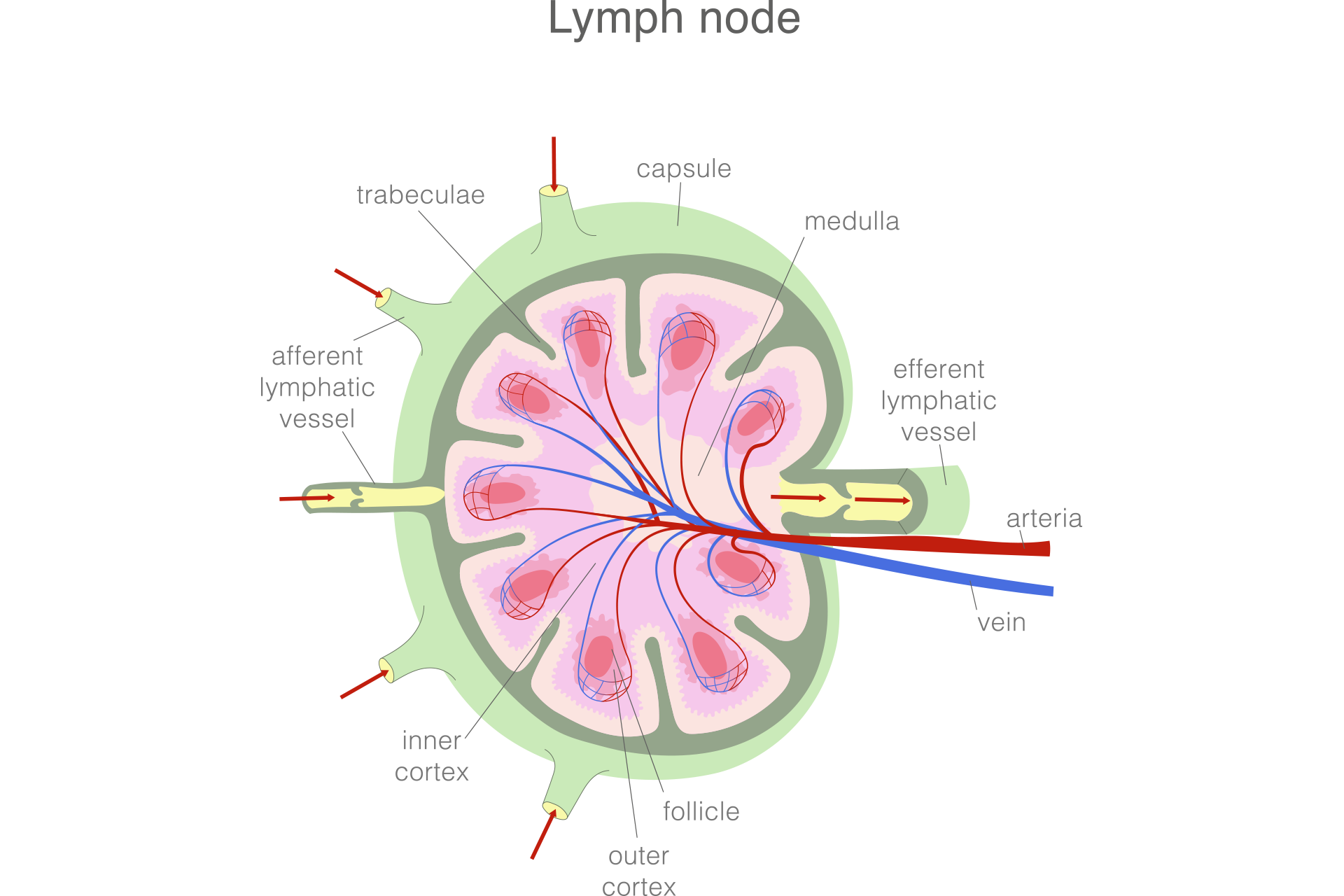Lymphoma is a type of cancer that originates in the lymphatic system cells. The immune system comprises several organs, such as the spleen, lymph nodes, bone marrow, and the thymus gland, which work together to fight diseases. Lymphoma can affect any of these areas, leading to their dysfunction, as well as other organs in the body.
Lymphoma is a type of cancer affecting the lymphatic system, an essential part of the immune system. The disease is characterized by the uncontrolled multiplication of lymphocytes, a type of white blood cell that is responsible for fighting infections. These cells move through the body via the lymphatic system, a network of vessels and organs that work together to transport lymph, a clear fluid containing infection-fighting cells and waste products.
The lymph nodes, small bean-shaped structures found throughout the body, act as filters for the lymph. They contain immune cells that help to identify and destroy harmful substances, such as bacteria and viruses. When lymphocytes multiply uncontrollably, they can form tumors in the lymph nodes or other parts of the body, disrupting the normal functioning of the immune system.
There are more than 60 different types of lymphoma. However, they are set in two main lymphoma categories:
- Hodgkin’s lymphoma
- Non-Hodgkin lymphoma
Lymphoma is not a common disease in the United States. According to the American Cancer Society, around 89,000 people are diagnosed with lymphoma every year. In comparison, over 236,000 people in the country receive a lung cancer diagnosis yearly.














